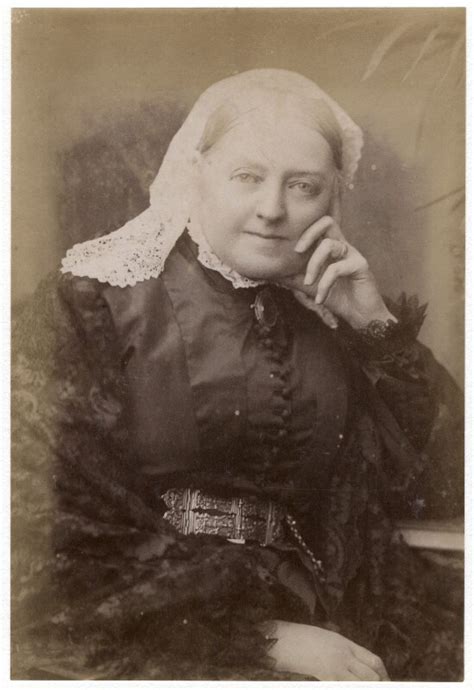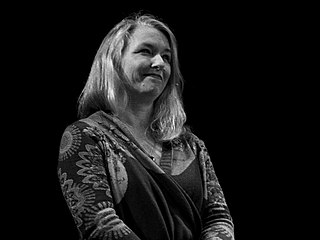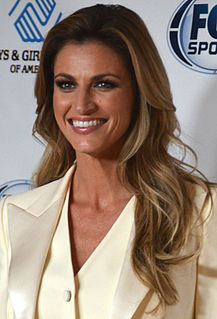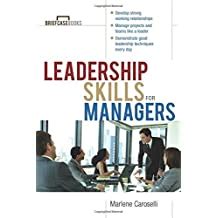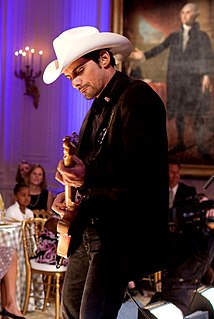Top 625 Topic Quotes & Sayings - Page 10
Explore popular Topic quotes.
Last updated on April 20, 2025.
He that condemns himself to compose on a stated day will often bring to his task attention dissipated, a memory embarrassed, an imagination overwhelmed, a mind distracted with anxieties, a body languishing with disease: he will labour on a barren topic till it is too late to change it; or, in the ardour of invention, diffuse his thoughts into wild exuberance, which the pressing hour of publication cannot suffer judgment to examine or reduce.
In later years, when I started working in police ethics, I was professionally drawn back to the topic but as well was better able to see two sides to loyalty - its importance for certain central human relations such as friendships, but also its corruptibility in the sense that loyalty could be invoked against other moral constraints: it sometimes function as something of a moral Trojan horse, undermining other moral considerations.
Gossip, public, private, social - to fight against it either by word or pen seems, after all, like fighting with shadows. Everybody laughs at it, protests against it, blames and despises it; yet everybody does it, or at least encourages others in it: quite innocently, unconsciously, in such a small, harmless fashion - yet we do it. We must talk about something, and it is not all of us who can find a rational topic of conversation, or discuss it when found.
Now, the topic of religion seems much more complex, and I have a more complex relationship with it myself because I love religious music. I often find myself wanting to be in a religious state of mind even though I don't intellectually believe it. I want to go to that place emotionally. So it doesn't feel like something that I really want to debunk in that way. It's just not where my interests lie at the moment.
My all-time favorite topic in positive psychology is the study of positive emotions. I'm fascinated by how pleasant experiences, which can be so subtle and fleeting, can add up over time to change who we become. I'm especially excited these days about investigating how positive emotions change the very ways that our cells form and function to keep us healthy.
I didn't intend to work on the issue of child marriage, but I felt like it was a topic that is related to a lot of the other issues, like acid attacks, self-immolation, and female genital mutilation. I wanted to continue to drive the conversation, but my overall goal is to protect girls. Photography has a way of addressing the viewer whether they want to deal with it or not, and that's why photography is such a good medium for documenting the issues that girls face.
I gravitate to stories that I feel I can tell well, and that will have a positive affect on the viewer. That doesn't mean it always has to have a happy ending, but I always like to try to tell a story that will make people think in a new way or come to their own constructive resolution on a particular topic. Or simply, just to experience something collectively and say: "Yeah, I know how that feels".
It is like using a smoke screen, the same thing for an individual. The topic here is Islam. If French politicians are no longer talking about Islam, they know they will have to talk about something else, which brings the spotlight on their inefficiency. They will have to talk about domestic social and economic issues and they will have to justify their foreign policy, which is obviously something they need to avoid at all costs.
No aphorism is more frequently repeated in connection with field trials, than that we must ask Nature few questions, or, ideally, one question, at a time. The writer is convinced that this view is wholly mistaken. Nature, he suggests, will best respond to a logical and carefully thought out questionnaire; indeed, if we ask her a single question, she will often refuse to answer until some other topic has been discussed.
White hate crimes, white hate speech. I still try to claim I wasn't brought up to hate. But hate isn't the half of it. I grew up in the vast encircling presumption of whiteness - that primary quality of being which knows itself, its passions, only against an otherness that has to be dehumanized. I grew up in white silence that was utterly obsessional. Race was the theme whatever the topic.
I first came up with the idea for the colour-chart pictures back in 1966, and my preoccupation with the topic culminated in 1974 with a painting that consisted of 4,096 colour fields. Initially I was attracted by the typical Pop Art aestheticism of using standard colour-sample cards; I preferred the unartistic, tasteful and secular illustration of the different tones to the paintings of Albers, Bill, Calderara, Lohse, etc.
Art and the triumph of the human spirit - the two combined thrill me. It's the "Braveheart" moment, the stuff Joseph Campbell talks about, "the heroes journey," a beautiful documentary on a poignant topic, the fireman saving a kitten from a burning building. It's the combo of heroism and kindness against the odds or even good reason. It implies immortality because it is the domain of the soul. That evidence of the spirit of life is what makes me get out of bed in the morning.
Pick the topic you like: the Middle East, international terrorism, Central America, whatever it is - the picture of the world that's presented to the public has only the remotest relation to reality. The truth of the matter is buried under edifice after edifice of lies upon lies. It's all been a marvelous success from the point of view in deterring the threat of democracy, achieved under conditions of freedom, which is extremely interesting. It's not like a totalitarian state, where it's done by force. These achievements are under conditions of freedom.
I'd been asked by Takashi Murakami to collaborate on something, which was an honor for me. I was really pleased. And then he had me as a guest speaker on his radio show, and we were talking about art. I don't think he knew I was interested in the topic - he was really surprised to find out that I own some original Andy Warhol and Gerhard Richter and Jean-Michel Basquiat works. So, in some ways, I think he simply wanted to see what I have.
There is in every breast a sensibility to marks of honor, of favor, of esteem, and of confidence, which, apart from all considerations of interest, is some pledge for grateful and benevolent returns. Ingratitude is a common topic of declamation against human nature; and it must be confessed, that instances of it are but too infrequent and flagrant both in public and in private life. But the universal and extreme indignation which it inspires, is itself a proof of the energy and prevalence of the contrary sentiment.
In a modern world, increasingly filled with pop culture fads and gimmicks, Lisa Morton reveals much of the underbelly history and unknown facts regarding the biggest pop culture event in history-Halloween. Her sheer delight and well-researched enthusiasm in tackling many of the unrecognized aspects of this monstrous topic makes one wonder what we don't know about everything else that should be as commonplace to our psyche as a bag of candy.
One of the things that got me on this topic for this book was that when I was researching the column I wrote in 2009 saying that I was stepping down from my column at "Newsweek" because I wanted to make room for newer, fresh voices out there, I discovered that in the year I was born, 1952, the average life expectancy of an American was 68. I was shocked by that figure and every time I mention it I hear a gasp from somebody in the crowd. Now, of course, we're more or less at 80, so that means that we've gotten 12 additional years.
You have to sit with the songs until they start to live. Or do things straight-up spontaneously. I set up a beat just like I do in the live show, add the lyrics that I wrote in thirty minutes - I already had a topic in mind because I had this crazy experience with this girl who was trying to get close to me and it freaked me out because she was really close to another friend of mine, and I thought, "This is a story, I'm gonna make this into a song."
We have really, really good-looking men who work for our network, and that's never brought into question. Our men dress very well, and look fantastic in a suit, and not once is that ever talked about. I can be called out on the Internet or in newspapers for asking a question, but if a male asked the same question, it would never be a topic.
Everybody gets plagued by indifference and monotony. The truth is, there are concepts that are constantly being repeated in this world, since the beginning of time, but it doesn't seem like any of us have mastered them. So my advice is to keep going with the topic, which usually has to do with redemption, love, compassion, freedom, injustice, perversion, divinity, the diabolical... keep going with your thoughts, and your heart, and push them through to transformation.
My father, Benjamin Shiller, told me not to believe in authorities or celebrities - that society tends to imagine them as superhuman. It's good advice. People are snowed by celebrities all the time. In academia people have this idea of achieving stardom - publishing in the best journals, being at the best university, writing on the hot topic everyone else is writing about. But that's what my father told me not to do. He taught me that you have to pursue things that sound right to you.
The profitable part of the online business is very likely several years away. Entering the business because it's the hot topic of the day doesn't make a profitable business nor satisfied customers. That's why it will be a part of Nintendo's strategy, not the mainstay, as other companies are attempting to do. There still are too many barriers for any company to greatly depend on it.
It's funny to hear how much certain people resist the lip ring. Sometimes I'll do a piece on an important topic and all the YouTube comments will be about the lip ring. I don't really have a good answer for why I got the lip ring. I just wanted it! But I've had it for a million years. I got my lip pierced when I was like 15.
Of course, there remains the question of why we should find mind-brain identities so persistently counter-intuitive, if they are true. But this is a simple psychological question, and there are a number of plausible explanations. Indeed this is a topic that is quite extensively discussed outside philosophy, by developmental psychologists and theorists of religion among others, under the heading of 'intuitive dualism'. It is rather shocking that so few of the many philosophers working on 'the explanatory gap' are familiar with this empirical literature.
I don't like to claim that I am an expert on anything, but I have enough knowledge about climate science and climate system to be able to write scientific papers and go to meetings and talk about monsoon systems and talk about any other things that you want to discuss about climate science issues. I'm as qualified as anybody that you know on this planet on this topic.
His brothers could tease him about his height or the number of scars he was collecting on his body. He could take the joke when they said he would die having never won a fair wrestling match. But the topic of Bettin still smarted too much. He'd imagined being with her always. Now when he closed his eyes, he had trouble imagining anything else.
When you put a halo on concepts - gender roles, religion, nationality or pride - or you put a halo on any topic - anything that you hold dear like the relationship between a father and son or a mother and daughter, what it means to be married or what it means to be single or what it means to be a free spirit or what it means to be an artist - if you just put a halo on something and say it's untouchable - "that is special and that is perfect" - you immediately close your eyes to the truth of it, because the truth is that nothing is perfect.
My parents made it clear that I should never display even the slightest disrespect to individuals who had the power to let me skip a half grade or move into more challenging classes. While it was all right for me to know more about a topic than my sixth-grade teacher had ever learned, questioning her facts could only lead to trouble.
In terms of e-books, though, I haven't quite gotten to the bottom of it yet, but for some reason everybody I know seems to want to engage me on that topic, or convert me. I think there are a lot of people who just want to hear me embrace e-books or finally say, 'OK, I bought an iPad and it's awesome!" There are a lot of people who would get a kick out of it, that's for sure.
There is no doubt about it: we are judged by our language as much as (perhaps more than) we are judged by our appearance, our choice of associates, our behavior. Language communicates so much more than ideas; it reveals our intelligence, our knowledge of a topic, our creativity, our ability to think, our self-confidence, et cetera.
I know that a lot of songwriters write about a break up. It's a really popular topic. I think heartbreak is the number one thing people write about. I could say that's narcissistic somehow because they want everybody to admire how pained they are. But I actually do think there's something beautiful and uplifting about knowing that you're not the only one who is experiencing or has experienced that kind of devastating loss. Everyone's experienced that.
At first, I felt bad judging an entire state by one county political official, but then I found out Morrison had also helped screen public school textbooks, a topic which is another chapter in my book. The Alamo is managed by the Daughters of the Republic of Texas, a group whose members can claim a relative who was living in Texas during the revolution. The fight over mismanagement of the Alamo has been going on for years.
I have often felt like I was the only one fighting against female genital mutilation. There is still a huge taboo surrounding the topic, because it involves the most private parts of the female´s body. But whenever I feel like this is too much for me to do, I read e-mails and messages I receive every day from people thanking me for speaking up for them, for giving them a voice. These messages let me know that I am not alone, and that what I do is worthwhile.
[in 1998] I know my political ideas affect what I write but I've tried to follow the facts wherever they land. Every topic I've written about begins as a question. How do police departments behave? Why do bureaucracies function the way they do? What moral intuitions do people have? How do courts make their decisions? What do blacks want from the political system? I can honestly say I didn't know the answers to those questions when I began looking into them.
I mean, let's look at it in the other way. If they claim that words have this mysterious power over people, well, 99 percent of on the songs on the radio deal with the topic of love and we use the term loosely. So, kids have heard love, love, love, love ... the minute they turn on the radio. Do you see any kids doing love? I see them doing crack ... but not love. So, it's bullshit!
The ground we have in common with unbelievers is not the Bible, but our common needs, hurts, and interests as human beings. You cannot start with a text expecting the unchurched to be fascinated by it. You must first capture their attention, and then move them to the truth of God's Word. By starting with a topic that interests the unchurched and then showing what the Bible says about it, you can grab their attention, disarm prejudices, and create an interest in the Bible that wasn't there before.
I am relieved that, in my own teaching, I don't have to moderate between high stake teaching and education for the virtues. If I did, I would give students the tools to take the tests but not spend an inordinate amount of time on test prep nor on 'teaching to the test.' If the students, or their parents, want drill in testing, they'd have to go elsewhere. As a professional, my most important obligation is to teach the topic, skills, and methods in ways that I feel are intellectually legitimate.
I do not think stress is a legitimate topic of conversation, in public anyway. No one ever wants to hear how stressed out anyone else is, because most of the time everyone is stressed out. Going on and on in detail about how stressed out I am isn’t conversation. It’ll never lead anywhere. No one is going to say, “Wow, Mindy, you really have it especially bad. I have heard some stories of stress, but this just takes the cake.
Those of us who think about what we eat, how it's grown, those of us who care about the environmental impact of food - we've been educated by fabulous books, like Fast Food Nation and documentaries like Food Inc. But despite these and other great projects that shine a critical light on the topic, every year the food industry spends literally tens of millions of dollars to shape the public conversation about our food system.
I know my comfort zone and I know what my strong points are and my first love was always music. I'm a huge cinema fan. I was taking my time; I got offered a lot of scripts and things along the way but until Burlesque showed up at my doorstep, it really spoke to me. I have a collection of burlesque books at home that I've had for years. I've always been intrigued and fascinated with the topic, the beauty and the art of it and the comedic value of it. I think it's just a beautiful, empowering thing for women.
To walk after the spirit a believer must inhibit his mind from revolving endlessly. If it turns too long around one topic, worries or grieves too much over matters, and ponders too intensively to know God's will, it may become unbearable and hamper its normal operation. The mind needs to be kept in a steady and secure state.
If you're dealing with heavy topic matter, sometimes it's good to have a lightness going into it because it allows you to be open to possibilities, rather than getting rigidly stuck into a certain mind-set. People are strange. When you break up, sometimes you end up laughing with one another, as opposed to crying. Things in life are unusual, and to find those things, it's best to be relaxed.
Why do girls always feel like they have to apologize for giving an opinion or taking up space in the world? Have you ever noticed that?" Nicole asked. "You go on websites and some girl leaves a post and if it's longer than three sentences or she's expressing her thoughts about some topic, she usually ends with, 'Sorry for the rant' or 'That may be dumb, but that's what I think.
You know you're ready to write a book when you have a feeling that you should do it, no matter what anybody says. It's like falling in love or starting a company. When you're still wondering if you should get married or you're still wondering whether you should start a company that might be not the right person or the right idea. And writing is the same way. When you've locked on to the topic, you'll just write it.
I'm interested in representation that falls outside of what would be socially appropriate, or acceptable, or beautiful. The world is going through a very fundamentalist moment. You have right-wing politics and misogyny and religion employed together everywhere - here in the US, with issues like abortion. Religion is a very fraught and complicated topic, but at the same time, like all grand historical narratives, there is a potential for challenging, or rethinking the kinds of subjectivities that these meta-narratives produce.
It's very bad to write a novel by act of will. I can do a book of nonfiction work that way - just sign the contract and do the book because, provided the topic has some meaning for me, I know I can do it. But a novel is different. A novel is more like falling in love. You don't say, 'I'm going to fall in love next Tuesday, I'm going to begin my novel.' The novel has to come to you. It has to feel just like love.
If the topic be highly abstract, show its nature by concrete examples. If it be unfamiliar, trace some point of analogy in it with the known. If it be inhuman, make it figure as part of a story. If it be difficult, couple its acquisition with some prospect of personal gain. Above all things, make sure that it shall run through certain inner changes, since no unvarying object can possibly hold the mental field for long.
We all dream dreams of unity, of purity; we all dream that there's an authoritative voice out there that will explain things, including ourselves. If it wasn't for our longing for these things, I doubt the novel or the short story would exist in its current form. I'm not going to say much more on the topic. Just remember: In dictatorships, only one person is really allowed to speak. And when I write a book or a story, I too am the only one speaking, no matter how I hide behind my characters.
Dress has never been at all a straightforward business: so much subterranean interest and complex feeling attaches to it. As a topic ... it has a flowery head but deep roots in the passion. On the subject of dress almost no one, for one or another reason, feels truly indifferent: if their own clothes do not concern them, somebody else's do. ... Ten minutes talk about clothes (except between perfect friends) tends to make everyone present either overbearing, guarded or touchy.
To know only one thing well is to have a barbaric mind: civilization implies the graceful relation of all varieties of experience to a central humane system of thought. The present age is peculiarly barbaric: introduce, say, a Hebrew scholar to an ichthyologist or an authority on Danish place names and the pair of them would have no single topic in common but the weather or the war (if there happened to be a war in progress, which is usual in this barbaric age).
For proponents of ecosystem-based management,the good news is that another new book, Ecosystem-based Management for the Oceans, conveys the topic at its state-of-the-art level of development...both Marine Ecosystems and Global Change and Ecosystem-based Management for the Oceans are valuable troves that could profitably be mined, and any academic bookshelf would wear them well.
Sara Scherr and Jeff McNeely have given us a thoughtful, sensible book about a topic of great importance to the world. There is no food security, no poverty reduction, no environmental sustainability without transforming our agricultural practices. The book ?presents well documented cases of best practices from all over the world. It should be required reading for all concerned with agriculture, the environment, food security or just the future of our children.
Beauty has never been an important topic in the writings of the major psychologists. In fact, for Jung, aesthetics is a weak, early stage of development. He follows the Germanic view that ethics is more important than aesthetics, and he draws a stark contrast between the two. Freud may have written about literature a bit, but an aesthetic sensitivity is not part of his psychology.
When Dad came home from work, he'd turn our family dinners into tutorials on business, money, sales, and profit margins. He shared fascinating stories about his customers, marketing, and my favorite topic when I was a kid - new product launches. Our father also took us to his office before the advent of 'Take Your Child to Work Day.'
Ever since I was a child, I always had insecurity or suspicions about my own personal identity. That's why I started going to a lot of movie theaters, because I felt more comfortable there than at school. Now, the search for a personal identity is becoming a common topic for young Japanese people, and it's a big theme in their own lives. But it's been a theme in my life, as well, ever since I was young.
I never went in thinking, "You're an African-American woman, so you're never going to win." I was just in career doing beauty pageants for the experience, and to show my brains and talent and help break stereotypes. It wasn't like, "Oh, I'll become a star. I'm beautiful." I never thought I was pretty. I couldn't even put on eyelashes or makeup. When you come from an environment that's military, and they don't stress that topic of aesthetics or beauty pageants and makeup, there are a lot of things you just don't have that city girls have.


